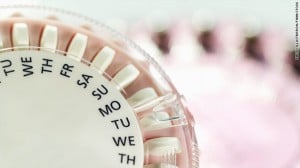Birth Control Should Be Free Says Institute of Health
July 20, 2011
 (CNN) — Contraceptives, sterilization and reproductive education should be covered by health insurance plans with no cost to patients under the health care reform law, a new report recommends.
(CNN) — Contraceptives, sterilization and reproductive education should be covered by health insurance plans with no cost to patients under the health care reform law, a new report recommends.
The birth control methods, services and education should be available “so that women can better avoid unwanted pregnancies and space their pregnancies to promote optimal birth outcomes,” according to a report from the Institute of Medicine, an independent, nonprofit organization that gives advice to decision makers and the public.
Annual HIV tests, breastfeeding support and a well-woman care visit should also be fully covered as preventive services, the report states.
Under most health insurance plans, birth control such as hormone pills and implantable devices are partially covered, but require patients to contribute financially. If the Institute of Medicine committee’s recommendations are accepted by the U.S. Department of Health and Human Services, women will no longer have to shell out co-pays, deductibles or other out-of-pocket fees for approved birth control or sterilization methods.
It’s unclear whether HHS will implement the report’s recommendations. That decision could come as early as August.
“We are reviewing the report closely and will release the Department’s recommendations of what additional preventive services for women should be covered without cost sharing very soon,” said HHS Secretary Kathleen Sebelius.
She called the IOM report “historic” and said its recommendations were “based on science and existing literature.”
The IOM committee recommended that all U.S. Food and Drug Administration-approved contraceptives, including the morning after pills, should be fully covered by insurance plans.
Contraceptives can help families plan pregnancies, the report states. A national survey found that an estimated 49% of all pregnancies in the United States were unintended in 2001.
And women who have unintended pregnancies are more likely to have little or no prenatal care, and engage in risky behaviors such as smoking, drinking or experience domestic violence.
To read the full CNN story, click here.

